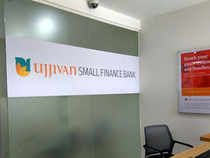 The past decade was nothing short of a roller coaster ride for India’s real estate investors. With a multitude of factors, such as the demonetization, RERA, GST, and the more recent NBFC crisis coming into the picture, the sector’s growth prospects have taken a dip during recent months. Oddly, though, the real estate space in South India managed to flourish during a time when larger markets in other parts of the country struggled with declining sales. Apart from India’s IT capital Bangalore, the Hyderabad market showed great potential, eventually emerging as one of the hot destinations for PE investments in the real estate space.
The past decade was nothing short of a roller coaster ride for India’s real estate investors. With a multitude of factors, such as the demonetization, RERA, GST, and the more recent NBFC crisis coming into the picture, the sector’s growth prospects have taken a dip during recent months. Oddly, though, the real estate space in South India managed to flourish during a time when larger markets in other parts of the country struggled with declining sales. Apart from India’s IT capital Bangalore, the Hyderabad market showed great potential, eventually emerging as one of the hot destinations for PE investments in the real estate space.
According to data released by PropTiger, it was the only metro city in India where property prices increased by 17% during the first quarter of FY 2020 on a year-on-year basis. While this golden run has continued since the State bifurcation in 2014, activities in the Hyderabad’s real estate space have doubled only recently; in the last couple of months, to be precise. Industry estimates suggest that annual commercial leasing in Hyderabad has gone up from 4-4.5 million square feet to 9 million square feet, trailing only Bangalore, where the average is 13 million square feet.
Infrastructural improvements, increased inflow of working professionals, along with the government-led initiatives towards the ease of doing business have worked in favour of Hyderabad as well as its real estate sector. Moreover, with tech giants like Amazon and Apple making their way into the City of Pearls, the market has witnessed a sudden upsurge in the absorption, supply and cost of the property. Given this interesting scenario, let’s take a closer look at the fundamental growth drivers that have impacted the real estate market of Hyderabad.
New launches propelling the growth of commercial office space
Home to numerous tech start-ups and global firms, Hyderabad is billed as the next IT hub of India. Last month, Amazon opened its biggest campus outside the US in this city. Located in Hyderabad’s financial district near Hi-Tech city, the campus covers an area of over 9.5 acres and is expected to house 15,000 employees. This is, in fact, amongst the largest centers of an MNC in India. Hence, it’s no secret that commercial office projects are driving investments in real estate and realty players are bullish on the Hyderabad market. Even outstation developers are currently eyeing the local market, thereby indicating excellent growth potential.
Higher demand for rental housing
Hyderabad is a preferred destination for both students and salaried professionals. Every year, thousands of youngsters migrate to this city for better career prospects. Sample this, one-third of Amazon’s total India employee base works from Telangana, of which the majority resides in Hyderabad. This explains the growing appetite for rental housing and therefore more investment opportunities for property builders and home-owners alike. Besides corporate executives, college and university students are seeking rented accommodation facilities. In addition, the emergence of co-living space providers has further bolstered the state of the residential real estate in Hyderabad.
Reasonable pricing of properties
Property prices in Hyderabad are relatively lower when compared to other metropolises like Mumbai and Bangalore. And, this is what gives this city a competitive advantage in terms of real estate investments. While a handful of real estate giants operate in Hyderabad, the market is yet to get monopolized. As such, there are equal, if not more, opportunities for smaller and up-and-coming companies. The city has always been an IT/ITeS and R&D destination, but more avenues are now being explored. The residential and retail real estate, for example, is witnessing a massive uptick in terms of sales. Subsequently, co-living players are foraying into Hyderabad’s market, carving a new niche for themselves. Thanks to these abovementioned factors, Hyderabad is fast turning into a top real estate investment destination, presenting unparalleled opportunities to realty developers, buyers and even operators.
[“source=businessworld”]














